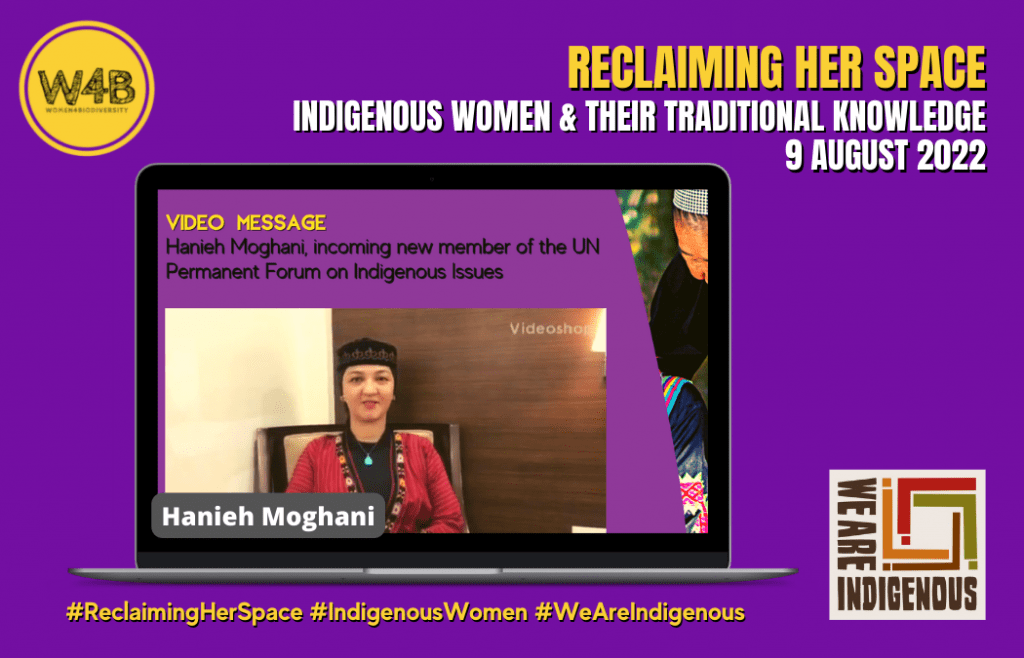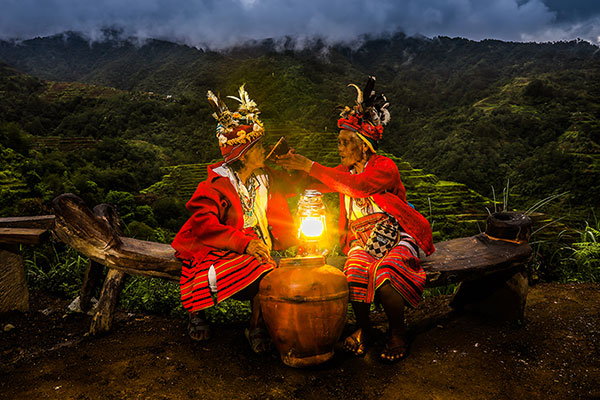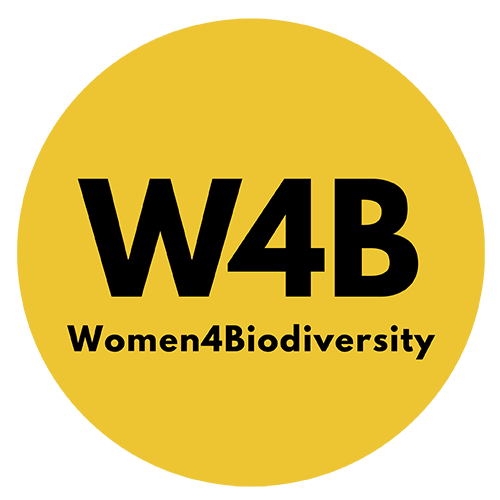By Sharon Ruthia, Policy Intern, Women4Biodiversity
Watch the replay of “Reclaiming Her Space: Indigenous Women and their Traditional Knowledge” above.
In celebration of International Day of the World’s Indigenous Peoples, Women4Biodiversity held a virtual event, Reclaiming Her Space: Indigenous Women and their Traditional Knowledge last August 9. The event is in line with the Indigenous Peoples Day theme this year, “The Role of Indigenous Women in the Preservation and Transmission of Traditional Knowledge.”
Women4Biodiversity brought together women panelists across different regions to share their experiences and contributions by women in preservation of traditional knowledge on the ground. The discussions revolved around women as holders of traditional knowledge and some of the challenges they are exposed to by virtue of being indigenous women.
‘‘Indigenous women cover every geographic region in the world from the lands to the sea. They represent diverse and rich knowledge, history and skills to sustain the well-being of indigenous communities,’’said Women4Biodiversity director Mrinalini Rai in her opening remarks.
Below are some highlights and insights from the virtual event.
Contributions by women in the preservation and conservation of biodiversity
Women are the backbone of a sustainable indigenous community and their efforts should be applauded. An example is a story shared by one of the panelists, Asia Indigenous Peoples Pact Indigenous Women’s Coordinator Pragyaa Rai on the indigenous women in Thailand who use their forests as an avenue for knowledge preservation and transmission.
Rai said that the indigenous communities in the Northern part of Thailand believe that all life begins in the forests. And as such, the indigenous communities have dedicated a specific part in the forest where upon a baby’s birth, their umbilical cord is placed in a bamboo container and hung from a healthy food tree. This is done in the belief that by doing so the souls of the babies and the trees are intertwined throughout their lifespan. No one is allowed to cut down the trees, ensuring a conducive and healthy environment in the forests.
Rai also highlights the nature of indigenous women’s knowledge, saying, “[it]is based on the accumulated observation of local phenomena… and the most significant thing about indigenous women holding and preserving these traditional knowledge is that it is more holistic rather than specialist.”
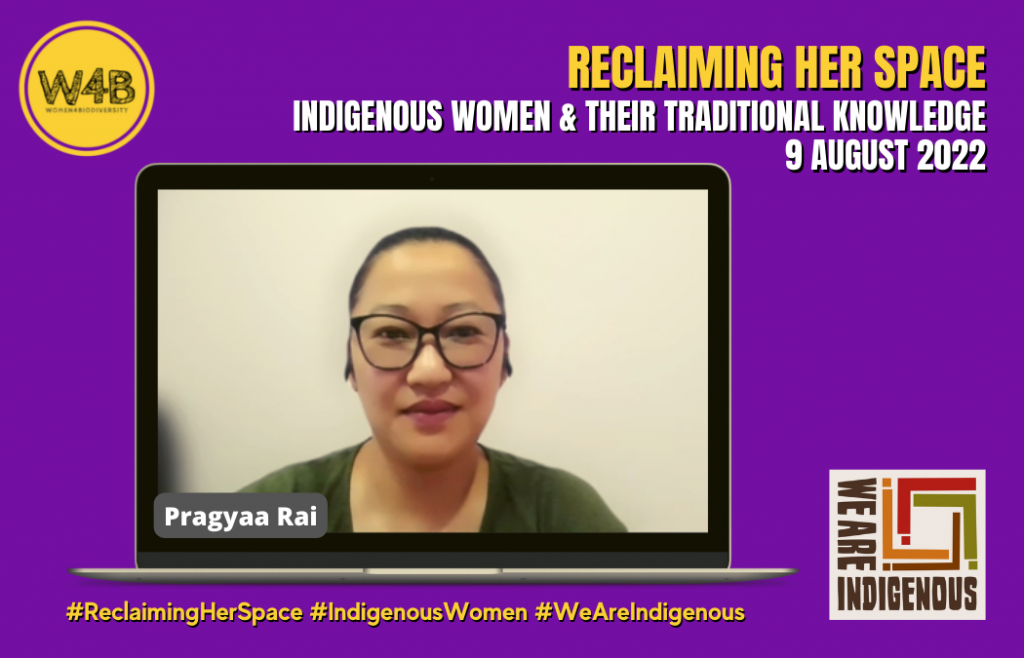
Indigenous women are holders of traditional knowledge in identifying the different species of flora and fauna, points out Support for Women in Agriculture and Environment Director Getrude Kabusimbi Kenyangi. Indigenous women identify the uses of these species in the aspect of nutritional value, medicinal purposes and pass these knowledge from generations to generations. In addition to their knowledge on use, indigenous women also possess the knowledge on conservation of biodiversity in terms of storing the seeds and keeping them viable for future use. Kenyangi said that losing the names and characteristics of species will result in total loss. Thus, this traditional knowledge should be protected.
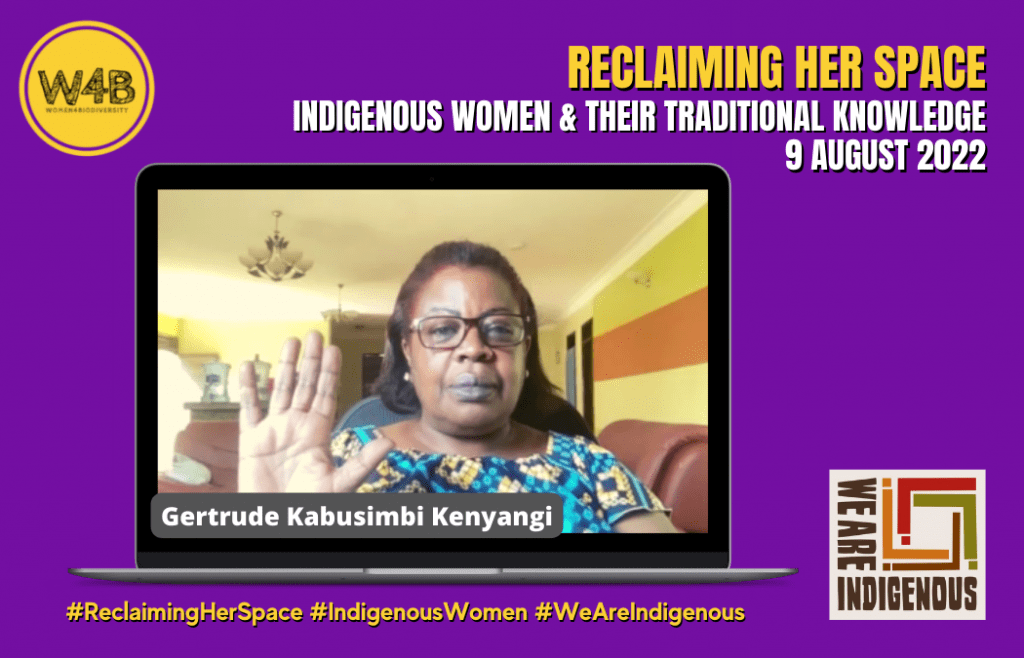
Threats on indigenous women transmitting traditional knowledge
However, despite these milestones achieved by indigenous women, their roles continue to be undermined as they are still seen as beneficiaries instead as partners and agents of change. Indigenous women still face challenges both internally and externally for being women and indigenous. For example, indigenous women are exposed to multiple forms of discrimination, lack of access to quality education, health care, limited access to ancestral land and exposed to sexual and gender-based violence. This is even with the United Nations Declaration on the Rights of Indigenous People’s that guarantees all the rights and freedoms equally to men and women as indigenous people.
What then is the way forward?
In the wake of these challenges, there is some crucial advancement in the recognition of women’s contributions. One of these advancements, according to Mrinalini Rai, is that the UN Special Rapporteur on the Rights of Indigenous Peoples will devote their next thematic report to indigenous women and the development, application, preservation and transmission of scientific knowledge. This will be presented to the UN Human Rights Council at its 51st session in September this year. The report shall focus on the role of indigenous women as scientific and technical knowledge keepers in the context of international human rights Law and identify some of the threats and challenges indigenous women encounter.
Rai further pointed out the adoption of the Abidjan Declaration in achieving gender equality for successful land restoration at the fifteenth session of the Conference of the Parties to the United Nations Convention to Combat Desertification (UNCCD COP 15) helped lead to the recognition that securing women’s access to and control over land and access to finance for land-based economic activities are central components for women’s economic empowerment and women’s rights. In addition, the Committee on Convention on the Elimination of All Forms of Discrimination Against Women (CEDAW) is currently elaborating the General Recommendation number 39 on the rights of indigenous women and girls which will be the first binding instrument that will protect and promote rights of indigenous women and girls.
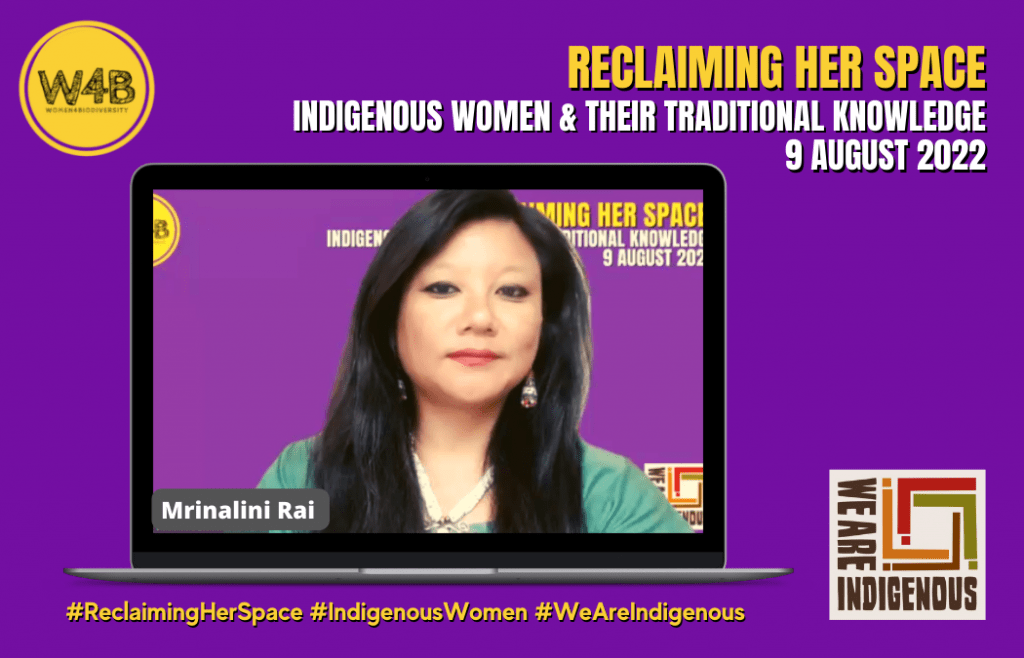
While conversations continue on the preservation and transmission of traditional knowledge, it is of significance to put into perspective that some of this traditional knowledge gets lost in transmission or lack of it. This may be because while the indigenous elders have protected the knowledge and practices, this is not always the case with the younger generation. To address this, Kenyangi said: ‘‘There should be an effort to make indigenous knowledge attractive and make the indigenous women proud of owning the knowledge so that the young people can see it and be happy to identify with it.”
One of the virtual event participants, Michelle Watio from Rights and Resources Initiative, suggested that to avoid the risk of the extinction of traditional knowledge, the following could be done by indigenous communities: community/participatory mapping in the transfer of traditional knowledge from elders to the young generation, increased research and documentation of traditional knowledge, recognize indigenous people’s system of collective land tenure and protect them against dispossession and fragmentation, and lastly, supporting community-led conservation on their territories of life.
In addition, Hanieh Moghani, Member of the UN Permanent Forum on Indigenous Issues, said: “As indigenous peoples, we all have the right to ensure the continuity of our practices, customs and traditions.”
Thus, indigenous women have a crucial role to help ensure that this cultural and spiritual knowledge does not disappear and it is transmitted to the next generation.
